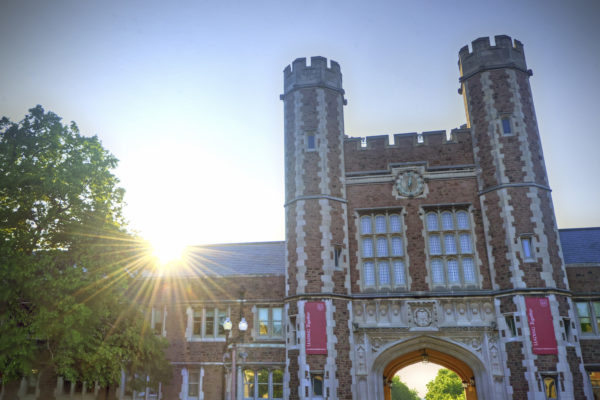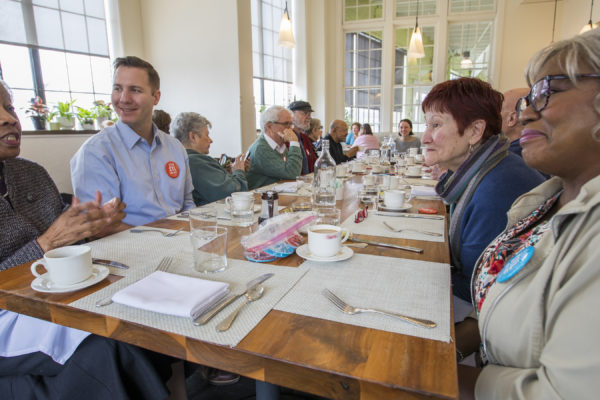The global pandemic has severely impacted every American, but maybe none more than older people. COVID-19 has placed a high-intensity spotlight on the deleterious effects of deep-seated ageism, sexism and racism on older Americans, suggests a new paper from the Harvey A. Friedman Center for Aging at Washington University in St. Louis.
“While the virus leads to worse health outcomes for older people, the pandemic presents a number of challenges to older adults beyond dealing with the virus itself,” said Nancy Morrow-Howell, the Betty Bofinger Brown Distinguished Professor of Social Policy at the Brown School and director of the Friedman Center.

Those challenges include lasting economic setbacks, health and well-being effects and highlighted ageism, racism and classism.
Morrow-Howell is corresponding author of the paper “Recovering from the COVID-19 Pandemic: A Focus on Older Adults,” in press in the Journal of Aging and Social Policy.
In the paper, Morrow-Howell and her co-authors Natalie Galucia and Emma Swinford, both of the Friedman Center, identify several specific challenges facing older Americans:
- A harder time re-entering the workforce
- Lost retirement savings
- Disruption/delay in usual social and health care services
- Lasting emotional effects from increased isolation and anxiety
- Older adults who have recovered from coronavirus may have increased health vulnerabilities going forward
- Stronger internal and external ageism
- Older adults of color and those with lower socioeconomic status are at increased risk for physical and economic challenges caused by COVID-19.
“The challenges we are facing can be expected, and in fact, none of them are new,” Morrow-Howell said. “Our state and regional agencies on aging, private and non-profit agencies, advocacy organizations and universities have been grappling with these issues in one form or another for years. But now, it seems our efforts to improve policies and programs for longer, healthier lives might be more productive as we communicate to consumers, public officials and everyday citizens who may be more aware of what isn’t working, what is at stake and what might be improved.
“Further, we can hope that the spotlight thrown on the inequalities experienced by disadvantaged people during this crisis will bring stronger commitment to working toward social justice and health equity.”
“We can hope that the spotlight thrown on the inequalities experienced by disadvantaged people during this crisis will bring stronger commitment to working toward social justice and health equity.”
Nancy Morrow-Howell
The paper does identify a number of opportunities for older adults as a result of the pandemic:
- Older adults have improved their technology skills and gained experience using online platforms
- Familial and intergenerational connections have grown stronger
- There may be renewed energy to combat social isolation
- Older adults are gaining more respect for self-care and time management
- There is increased awareness about the importance of advance directives and other legal documents
- There may be an upswing in interest among professionals across disciplines to work with older adults and issues of public health.
“Although it is not clear what our lives will look like over the next few months, we can anticipate both challenges and opportunities emerging as a result of this pandemic,” Morrow-Howell said.
“My hope is that by articulating these challenges and opportunities, we might move more quickly to minimize the negative outcomes of the spread of COVID-19 and maximize positive changes that might be possible,” she continued. “I hope that all of us — researchers, educators, practitioners, advocates, providers, government bureaucrats and elected officials — will redouble our efforts to improve our aging society in ways that benefit people across the life course.”
WashU Response to COVID-19
Visit coronavirus.wustl.edu for the latest information about WashU updates and policies. See all stories related to COVID-19.



